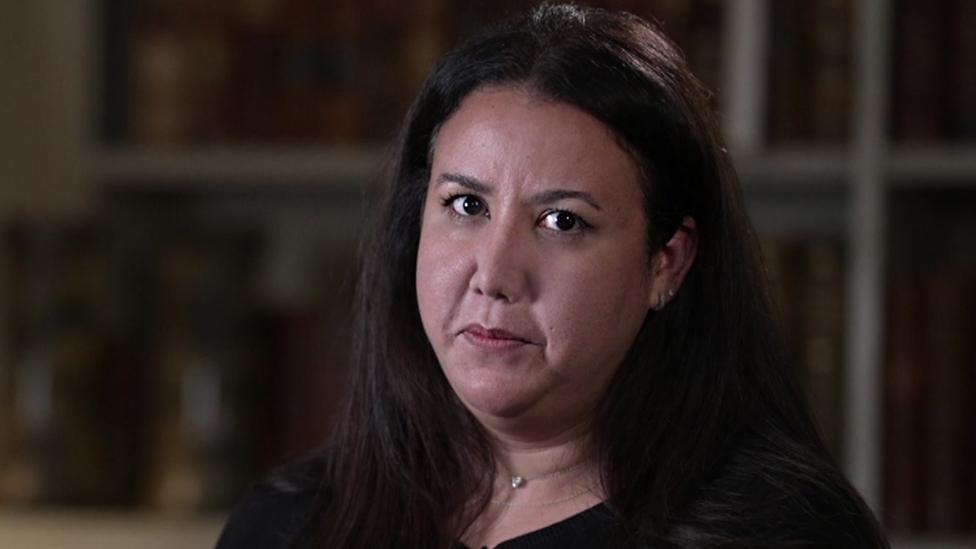Empower victims with court transcripts - campaigners
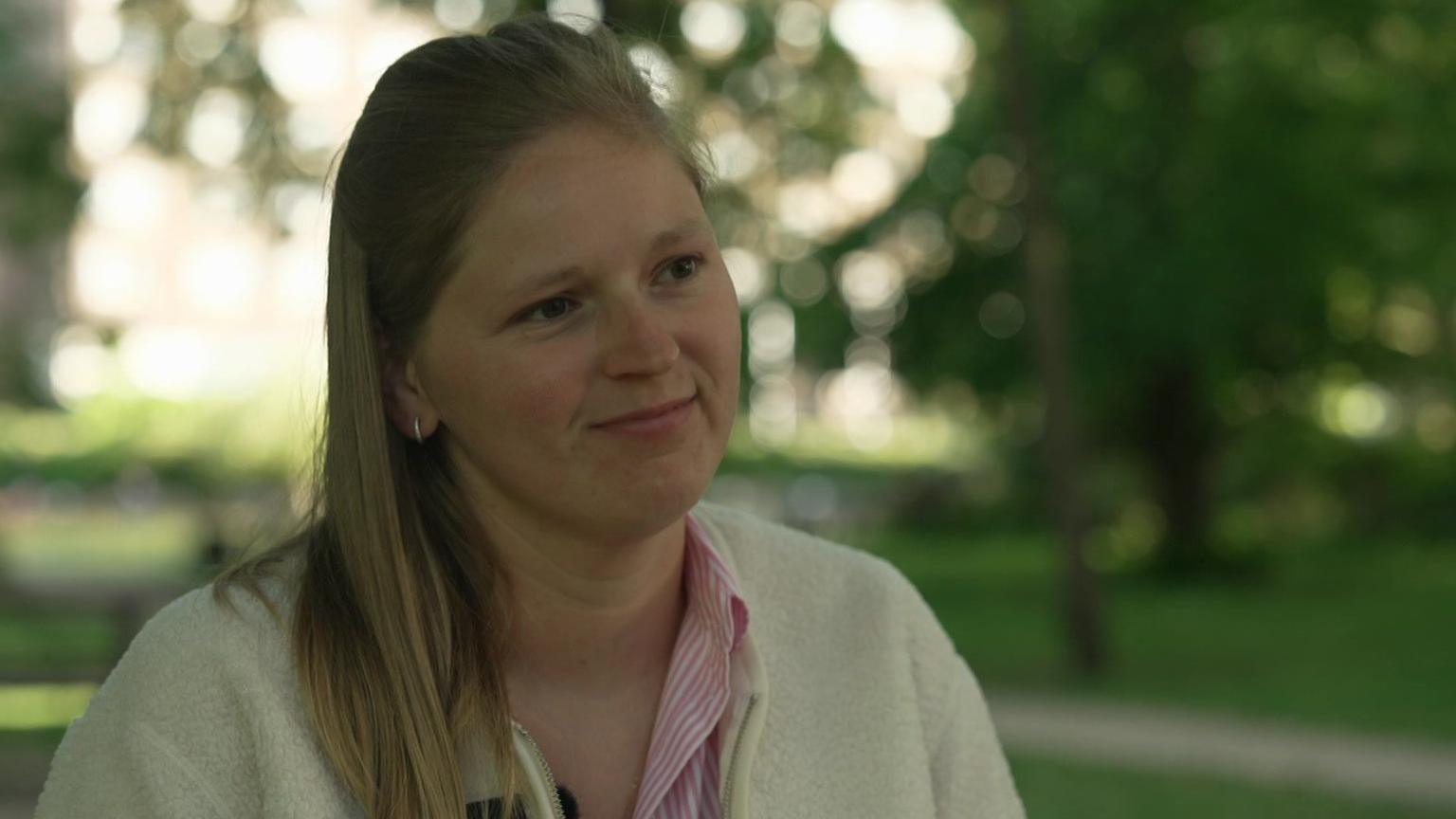
Charlotte is campaigning for victims to receive court transcripts free of charge
- Published
For many survivors of rape and sexual assault, the courtroom is a place of painful confrontation where they must recount their trauma in pursuit of justice. But long after the verdict is delivered, they can now receive the judge's sentencing remarks - and are calling for more to have that opportunity.
When Sarah, a survivor of sexual violence, received the envelope containing the sentencing remarks of the judge who sent her abuser to jail, she assumed that she would simply leave it unopened in a drawer.
The four-week trial had been "horrific" and she didn't think that it was something she would ever want to return to.
But when she read through the document, she was amazed at how it made her feel.
"It was ten pages of absolute wonderfulness," Sarah told me. "The judge's words were so empowering, so validating.
"She knew what I had suffered. People say 'you're brave', but they say it in a flippant way. To hear a high-up judge say I was brave was hugely comforting for me."
Sarah, whose name has been changed to protect her anonymity, received the transcript of the sentencing remarks under a government pilot scheme.
Launched last spring, it allows victims of rape and sexual offences - where the defendant has been found guilty - to apply for a transcript of the sentencing remarks free of charge.
The pilot was launched after campaigners complained that some victims were being charged thousands of pounds to access court transcripts.
The government said this week it would accept the recommendations of the Independent Sentencing Review to continue the scheme permanently.
'Cruelly charged'
London's Victims' Commissioner Claire Waxman welcomed the news, saying not being able to access a transcript could be a "real block to recovery" for victims.
She said one woman had been quoted £30,000 for a transcript of her full trial, while quotes for sentencing remarks ranged from £30-£300.
Ms Waxman said victims she had spoken to had told her that even the lower costs were unaffordable to them, especially "for something that they felt really should come as a part of them being able to see justice being done."
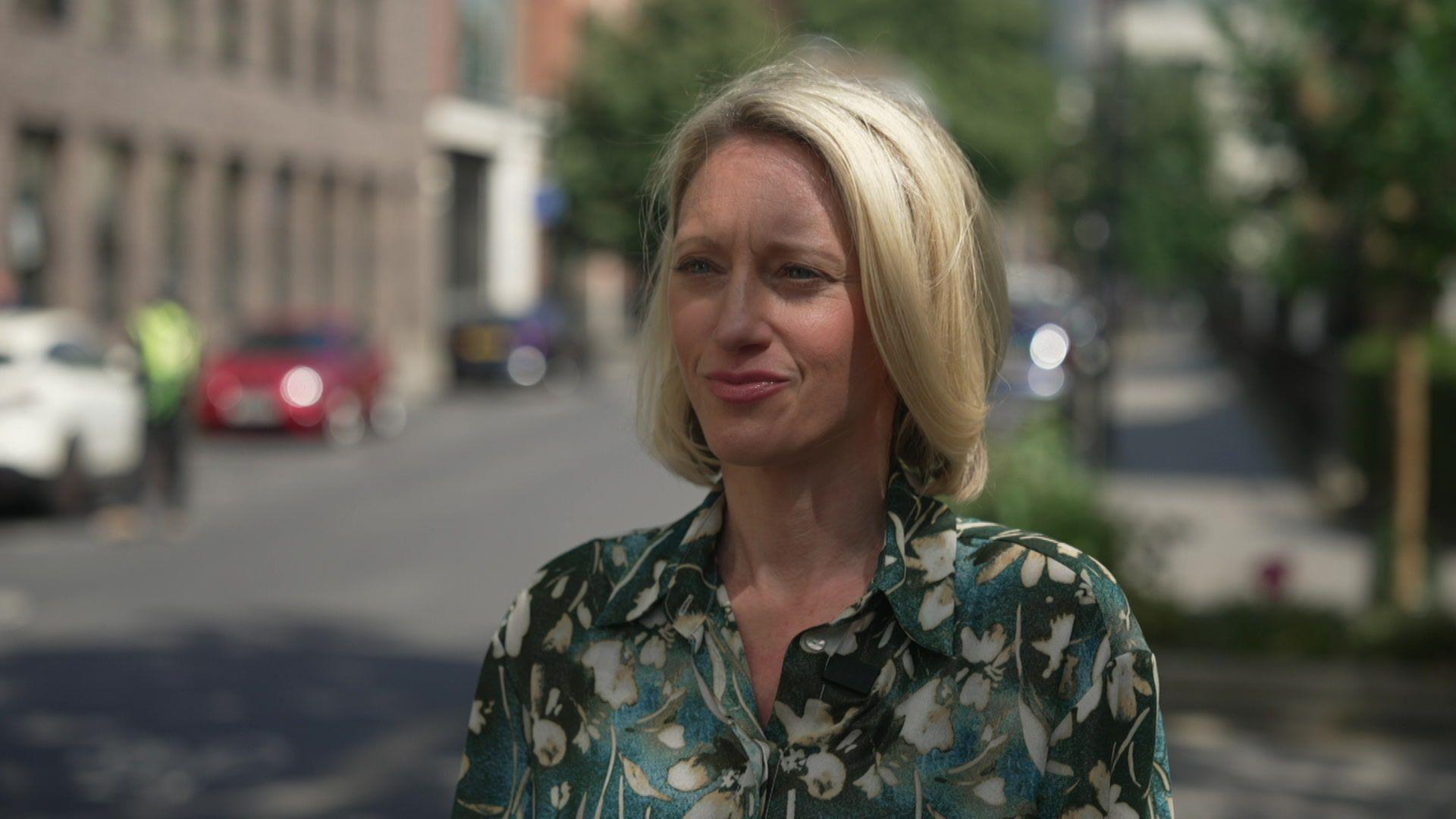
London's Victims' Commissioner Claire Waxman wants victims of other crimes to also receive sentencing and summing-up remarks free of charge
Liberal Democrat MP for Richmond Park, Sarah Olney, also welcomed the move, describing it as "shocking that some victims have been cruelly charged thousands of pounds for a transcript about their own case which is already traumatising enough."
Ms Olney had previously raised the case of one of her constituents who was charged £7,459.20 for transcripts of the trial that resulted in her former partner's conviction.
Sarah told me she would never have tried to apply for the sentencing remarks in her own case unless it had been free of charge.
She said she had known nothing about the government pilot until she saw a campaign by another young woman called Charlotte, who was trying to raise awareness of it.
"I didn't want much to do with it at first," Sarah told me. "I didn't think I needed it, but I felt I should throw my weight behind the campaign as it might help others."
Now, "those ten pages help my healing," she said.
'Bundle of joy'
Charlotte, who has asked us not to use her full name, said she had received positive feedback from a number of victims who had applied for their free transcripts via the pilot.
"They say it's life changing," she said.
"One woman said they were like a bundle of joy - they were able to read them every night when they felt not believed or when they felt like they were over exaggerating, or that didn't actually happen to them.
"They were able to pick up those transcripts and read those affirmations back from the judges who've explained that what happened to them was not right."
She said the pilot had helped about 500 people so far, but believed it could have been much higher as it was not promoted for several months after it first launched.
She said she would now like to see the scheme expanded to help others.
Ms Waxman said she believed the scheme should be available to help many victims of other crimes, not just rape and sexual offences.
"We hear from victims of all crime types, especially those with real vulnerability, around domestic abuse, around stalking, around hate crime, for example, and they want to be able to access sentencing transcripts as well."
'Struggling to understand'
Ms Waxman also called for the judge's summing-up remarks to be made available for free to people who had made allegations in cases where defendants were found not guilty, which she said would help provide clarity around how decisions were made.
"It's really difficult for them to understand why there was an acquittal, especially if they haven't come back in to the court process, which many of them won't have done."
She explained that many victims find it too traumatising to return to court once they'd given evidence, and many were advised by police and barristers not to, sometimes over concerns, in the case of a guilty verdict, that they might be "disruptive" during sentencing.
Ms Waxman said that there were ways around this, including managing expectations about the process, or offering a video link to watch proceedings if they felt unable to attend in person.
She added that CPS guidance had now been updated to make it clear that victims or witnesses had a right to remain to watch the trial.
But Charlotte said she had spoken to women who had been told "it might look bad" in front of the jury if they gave evidence behind a screen, and then went on to sit in a public gallery to watch the rest of the trial, and that doing so might mean having to sit next to their abuser's family or friends.
She said it meant they were left struggling to understand what had taken place in their absence and it went against the principle of open justice.
"The entire trial is about you. It's about the worst time of your life, about the most personal times of your life, but you have no idea what they've said.
"It feels kind of degrading, it feels scary.
"There are people in the gallery, there are people in the room, but you have no idea what's been said."
She explained that she had started the campaign following her own experience of giving evidence against a man she accused of coercive control.
He was found not guilty.
The case was heard in a magistrates' court, and Charlotte says she was told that records of the hearing had no longer been retained, so there was no possibility of obtaining a transcript.
"I only got snippets from people who sat in the gallery, and I just couldn't move on, because I wanted to know how this had happened, but the only way to find out was to get hold of a transcript."
Speaking in the House of Commons on Thursday, Justice Secretary Shabana Mahmood paid tribute to the "real bravery" shown by Olney's constituent for explaining "why the scheme would have made a difference to her own recovery".
She said the government would examine whether it needed to do more on publicising the scheme and that she hoped AI technology could be used as part of reforms.
"I do not believe that we are very far away from having tech that is accurate enough to be a matter of court record, but we are not quite there yet," she said. "It is something we continue to work on."
Now that Sarah has received the transcript of the sentencing remarks in her case, she describes herself "as one of the lucky ones".
"I love having it. I love being able to look at it when I'm feeling overwhelmed.
"He always told me people would never believe me," she said of her abuser. "Having those ten pages makes me realise people did believe me. It made me feel less alone."
Listen to the best of BBC Radio London on Sounds and follow BBC London on Facebook, external, X, external and Instagram, external. Send your story ideas to hello.bbclondon@bbc.co.uk, external
Related topics
- Published2 May
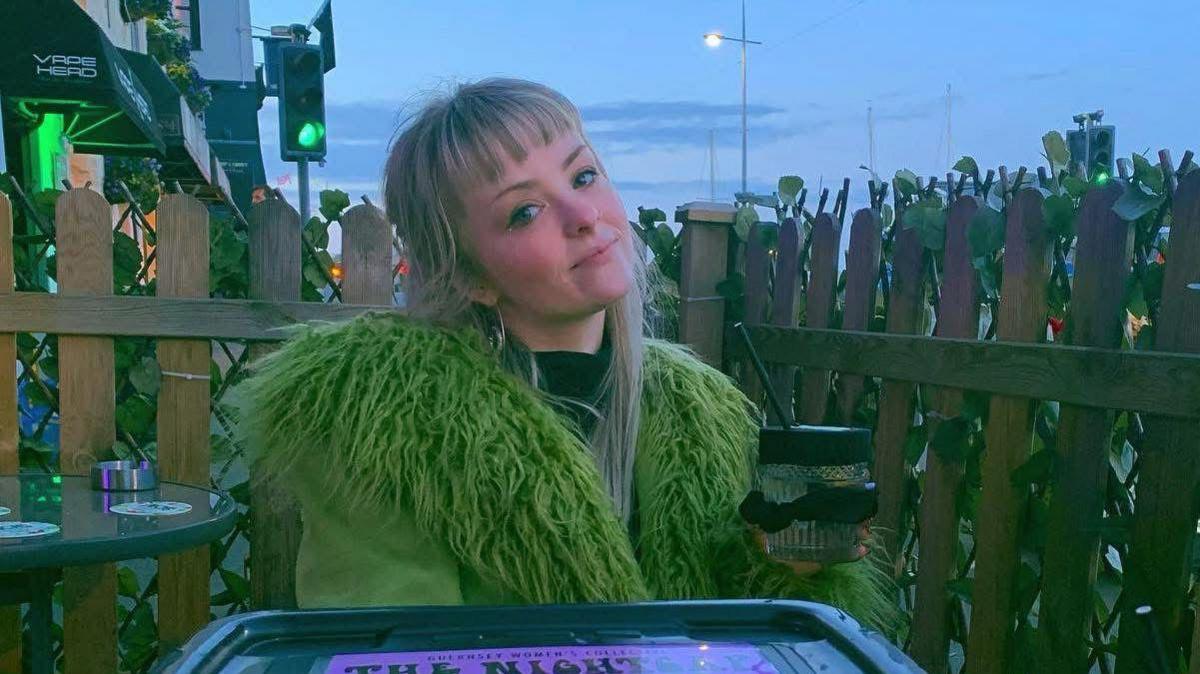
- Published23 January 2024
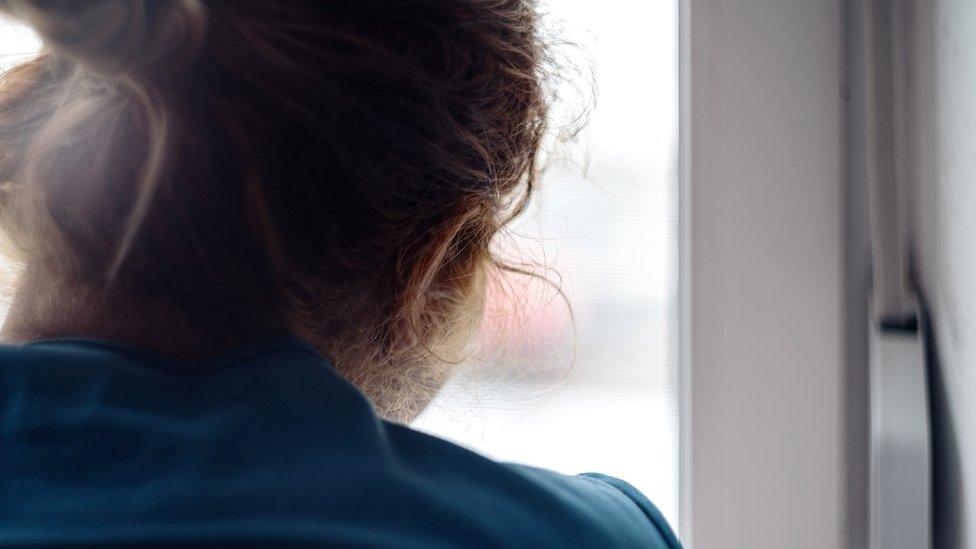
- Published24 October 2023
